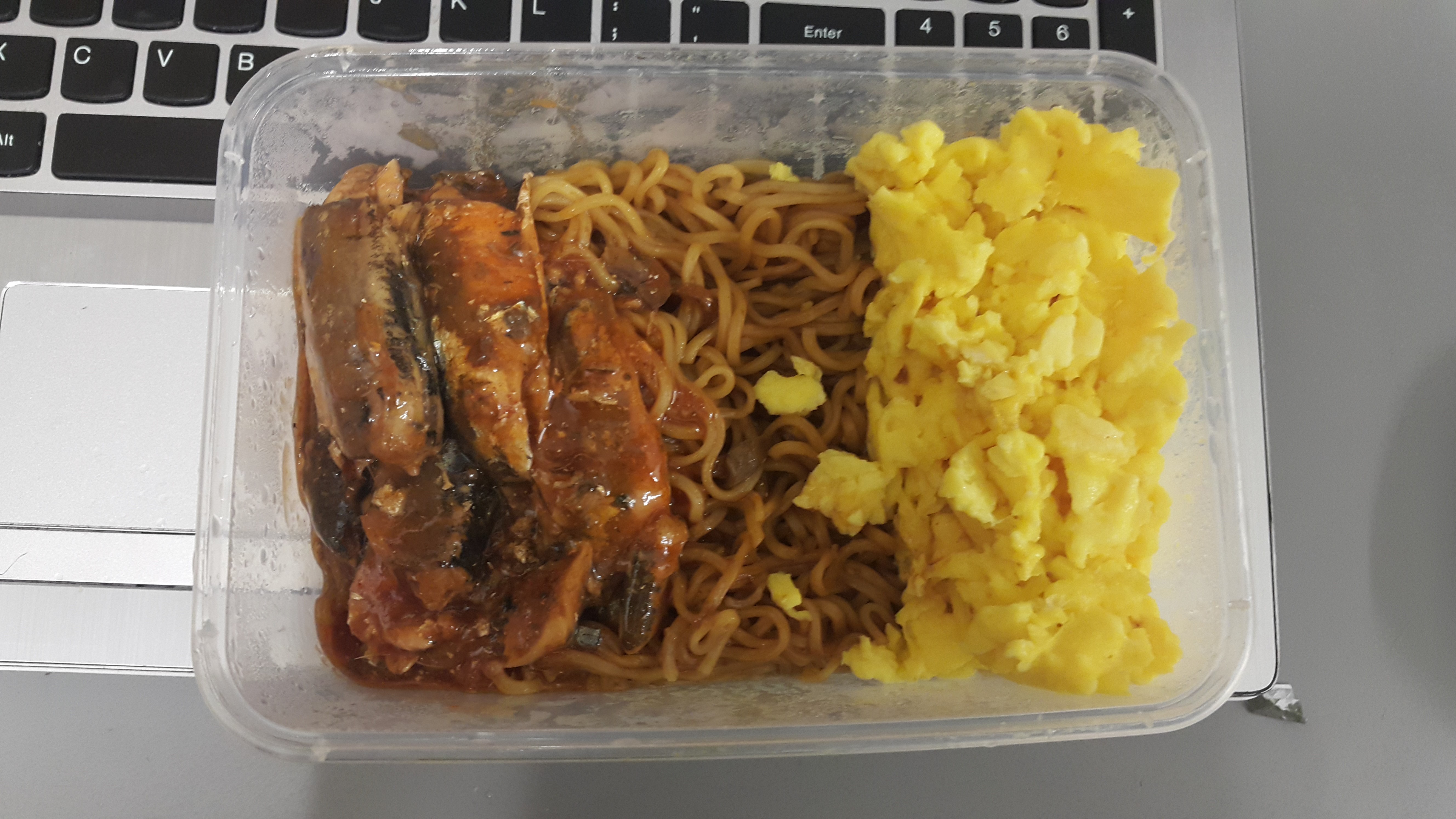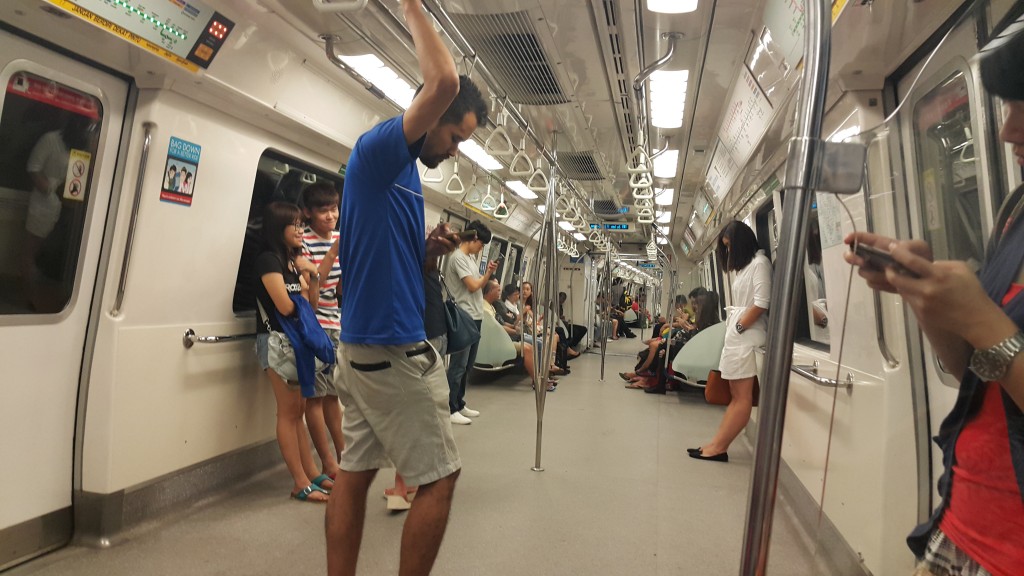
The word overseas is usually identical to expensive living cost. Is that true? Here are some few popular questions regarding living cost:
“How much is the living cost in <name the city>?”
“Is there any part time job available?”
As Indonesians, which purchasing power parity per capita pales compared to quite some other countries, we are often faced with those kinds of questions, especially when it comes to moving to developed countries (think of, for example, Canada, Ireland, or even Finland). The current demography of Indonesian students studying overseas may be a bit skewed towards the middle-upper class, but that doesn’t mean it’s totally out of reach for the rest of us. Did I also say that some of us may receive our stipend on a per term basis to save transfer fee and hassle, which makes it possible to be cash-strapped nearing the exam period?

However, there’s one thing you should (have) always remembered:
Savings = Income – Consumption
From the equation above, there are 2 ways to rely on less money back home (either scholarship or parents’ support): Make money or save money. There are a few tips I can give to make your bank notes sustain your life for longer:
- Make money: Do part-time jobs
Part time jobs, the holy grail of university students, are actually abundant. From undergraduate research, packing burger patties (because apparently flipping burgers can be eliminated), all the way to making a Christmas tree, they pay. Rates may vary, as usual, but should be enough to supplant your stipend. One great caveat for this: You’re a student, not a full time worker. Immigration rules in various countries such as United States, Germany, and Singapore prohibit excessive part time work, however one leeway worth trying will be working full time on holidays.
- To save or to splurge: What are the perks?
Some decisions in life are trickier to make. Not merely the fried noodle vs stewed squid conundrum (keep reading!), but also about other things. Contrary to the notion that being in a budget means penny-pinching every single time, splurging a bit may provide you with substantial benefit. Here are my two examples on splurging vs saving:
- Just like a lot of people, I love listening to music, however there seldom are any concert for my kinds of music. So, when I heard of such concert in Singapore, I wondered if it would be great to go, and so I did. It was fantastic to hear the songs live, even more than listening to the Proms on YouTube. Did I say it’s also much cheaper yet comfortable than squeezing yourself at pop music concerts?

- The housing dilemma. Single rooms are alluring due to the privacy offered (most rooms here are double occupancy), however with the US$75/S$100 monthly premium, it’s much better to buy a bond with that money instead. A single room may be great should I have any allergic issue (messy roommate, anyone?), or should I be the bedroom guy, but fortunately I’m out of my bedroom a lot of time, so I found out I’d be fine in double room.

- Save money: Is cooking by myself actually cheaper than buying it elsewhere?
Cooking, one of the most popular ways mentioned to save money, may not be the cheapest way to dine. There are actually a lot of costs involved in cooking by yourself, compared with merely buying from stalls. Consider this example: Stewed squid with tofu and Chinese cabbage, which I cooked myself, found not to be delectable, yet quite costly.
To make such unpalatable dish, I needed to spend a lot of time (around 2 hours including travel time to supermarket) and money (around twice my normal meal price). Worse still, I should finish it before dinner to make it not become another wastage. With that much time and money spent, I should have just slept and bought my meals at hawker centres or food courts.
Cooked food prices may vary significantly between places, and as such I can’t overemphasize the importance of researching the situation in your destination (for example, Cecilia noted that cooked food is expensive in Australia while a decent meal below US$2 is still possible in other place). However, should you wish to have a simpler, (unfortunately) instant meal to burn the midnight oil (or stretch your budget a little), it’s also still possible:

Bonus: Presentation on make or buy decision from one accounting class (slides 27 to 35) can be downloaded here (copyright to Rony Lim). Great to find out whether I should cook or buy my meals.
- Save money: Use public transport (when feasible)
Public transport, despite the affordable image, may not turn out very cheap. For example, you can shell around US$2.5 per subway or bus ride* in New York or up to US$2.04/HK$15.8 per subway ride* in Hong Kong. There may be times when a taxi ride is necessary, though it should be seldom. One great example of time saving afforded by taxi: Traveling from my hall to Changi Airport takes merely 40 – 50 minutes by taxi as opposed to almost 2 hours by public transport. Private transport can be justifiable in important cases such as being almost late for a date being tasked to buy and bring 500 bottles of water to the embassy ASAP (it once happened to me, for real), however sometimes the fare difference between different modes of transport can be steep, so given the time I better put the savings on nice souvenirs for my siblings rather than arrive at airport 1 hour earlier.
*highest fare for non-airport trips with highest discount applicable for university students

- Save money: Cheap or free entertainment
When we’re thinking of entertainment, chances are a lot of us may relate with café, movie, concert, or amusement parks. Don’t get it wrong, there are reason why they are popular. From the Instagram-worthy pictures, sheer thrill, all the way to joining others with the same interest, they are all quite compelling reasons.
On the other hand, quite some of the popular entertainments tend to be expensive, such as Disneyland’s US$95 one day ticket, or maybe concession snacks so expensive theatres can barely live without. However, there are still a lot of affordable entertainments available at your disposal, such as:
- Books from your institution’s library or local library. There can be some interesting things available, and even though some titles are not available, the choices are still vast enough to consider. My great examples will be an analysis on air ticket prices or the beloved book on airport planning and design which was too heavy to lug to Singapore.
- Nice view without the fee. Parks are abundant and can be quite nice, such as New York’s Central Park. For a low fee, you can also take a cable car ride across Thames River, or you can also see Tokyo from above for free. Museums can be also great places to entertain yourself without burning your pocket, yet one thing is that I won’t squeeze myself only to get that almost perfect photo of Mona Lisa in a museum.
- Window shopping. Learn to resist the temptation to buy things and just walk around shopping centres. If you’re lucky, you can also get free samples. Probably one of the lamer ideas, but that way you can also know more about goods prices around you as well as preparing gifts for your girl/boyfriend.
There are many ways to reduce our stipend reliance while overseas, yet don’t forget that you’re a student, not a full time worker. Devise your ways to stretch your fund, yet don’t neglect your studies over a few additional money. Lastly, you better not stretch the bank note, lest it’ll break.
See you on the next column!
All photos are taken by me except otherwise stated.









[…] Bonus: A lot of us want to live overseas on a budget, and I’m hearing your thoughts. I’ve made an article just for you to help you stay in the black till your next stipend arrives. Check it out here. […]
[…] Artikel ini adalah lanjutan dari artikelku sebelumnya mengenai tips berhemat di luar negeri. […]